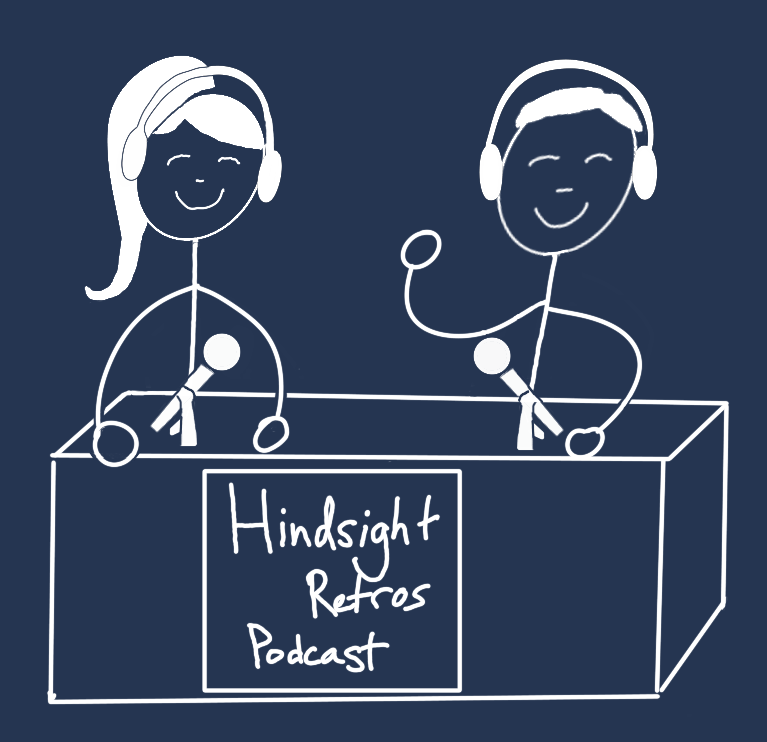Hindsight Retros: Inaugural Newsletter
We’re launching a podcast!
Sue and I believe the retrospective practices we learned in the workplace can transform our personal lives.
To see if we’re right, we’re kicking off a podcast; some episodes will be actual retrospectives, and some episodes will be about the process and philosophy of retrospectives. We will explore what’s unique about doing this in the personal sphere, and give you the opportunity to benefit from other people’s hard-won lessons.
On September 6 we’ll launch our first episode, and you can look forward to a new episode every two weeks!
A tool to get in the right mindset: Radical Candor
A common obstacle to a blameless mindset is that we often imagine that we can be honest, or we can be kind, but we can’t be both.
This is a false dichotomy.
The truth is it’s possible to balance them, with practice and care. Honesty and kindness are not in conflict — they are in tension.
Radical Candor is a book that explores this concept. At the center of the book is the metaphor of a compass with four points. The vertical axis represents whether you are displaying personal caring; the horizontal axis represents whether you are confronting a situation directly. The combination of those two creates four possible communication styles:
Caring but not confronting: “Ruinous Empathy,” in which you tolerate bad behavior because you don’t want to hurt feelings.
Not caring for, and not confronting: “Manipulative Insincerity,” in which you are insincere to someone’s face and criticize them behind their back.
Not caring for, but confronting: “Obnoxious Aggression,” in which you call someone out for their bad behavior but in a way that belittles or insults them.
Caring for while confronting: “Radical Candor,” addressing bad behavior in a way that is honest but caring.
The false dichotomy people imagine is that only “Ruinous Empathy” and “Obnoxious Aggression” are possible, but there is a real power to knowing that the “Radical Candor” quadrant exists, and learning to find it in a retrospective.
What we’re listening to lately
David Duchovny has launched a podcast about learning from failure, which is very connected to our theme. It’s called Fail Better, and you can find it by searching in your podcast app of choice.
I’ve listened to several episodes, and frankly his approach is not always blameless — which doesn’t mean it’s a bad approach, it just comes out of a different tradition. But as I listen to the episodes in order, I find his interview style becoming more blameless, challenging negative self-talk and scapegoating to focus on how failure helps us become better.
The theme of failure is sometimes subtle, and can sometimes feel like it’s just a way to open the interview. But recent episodes are doing a better job of returning to the topic and focusing on the role of failure in the interviewee’s career.
Another way Fail Better differs from Hindsight Retros is that neither Sue nor I got famous starring in the X-Files. Duchovny has access to famous people, and it can be entertaining to hear much-admired people finding the vulnerability to share their mistakes. Not all of the episodes are for everyone — there were a couple very sports-focused episodes that I, who finds sports excruciatingly boring and overemphasized in our culture, could not make it through. But even I, despite my prejudices, have found plenty to enjoy in this podcast – particularly having listened to it since its launch, and watching and he learns and improves it through his focus on his own podcasting failures.







